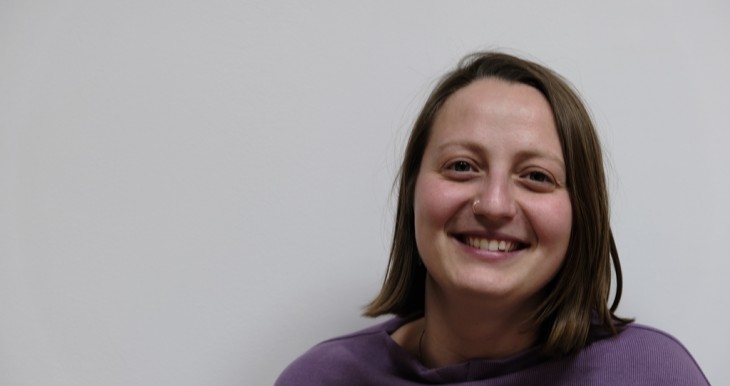Nothing could fully prepare Valentina Homenko, the former Jewish Agency Israel Fellow to Hillel at University of Massachusetts, Amherst, for the anti-Israeli atmosphere which had emerged on that campus. But the challenging experience would strengthen her Jewish identity.
Valentina was one of nearly 100 Campus Israel Fellows. After completing their army service, the young Israeli Fellows travel for one to three years to university campuses around the world, with the goal of empowering student leadership and creating Israel-engaged campuses.
“I worked with students to help them find their connection to Israel and Judaism, because it is impossible to teach Judaism without teaching about Israel. The topics complement each other,” says Valentina, an immigrant to Israel from the former Soviet Union (FSU).
Israel Fellows like Valentina in North America are based in Hillels and other Jewish student organizations. They work with students and faculty to strengthen their campus affiliation with and support of Israel.
Working with her partners at UMass Amherst, Valentina countered anti-Israel and anti-Semitic activity not directly or reactively, but instead, by proactively exposing students to a positive and diverse picture of Israel.
Valentina realized that the first problem facing Jewish students on campus was isolation.
“The community simply did not show openness. I recognized the opportunity to open the community, through Hillel members, and to make them participate in larger university events. I invited them to come and present themselves as part of the audience that supports Israel at the academic level,” she says.
The second problem, she explains, was “that the Jewish community has stereotypes about Israel and Israeli society. Most of the Jews in the American university setting are of Ashkenazi origin, and their opinion about Israeli society was that Israelis are all the same ‘color’… So I organized Middle Eastern cultural evenings featuring Ethiopian Jews and Russian Jews to learn some of the ways of those communities celebrate holidays.”
Thirdly, Valentina says, “the students were depending on narrow and biased sources of information about Israel, and I pushed them to use alternative sources — newspapers from the left to the right — so that they would have a broader picture.”
“There is fear among Jewish students before a confrontation with anti-Israel organizations, due to a lack of knowledge and a lack of self-confidence,” Valentina says. “To reduce the fear, we opened a special course on Israel. We talked about the Arab-Israeli conflict, Israeli society, and Israeli culture, in order to provide the informative basis to raise their confidence in making a case for Israel.”
Finally, in an issue that resonated with Valentina on a personal level, she says children of immigrants from the FSU “could not find their place in the larger community of Jews on campus.”
“Together with two other students, we created a club of Russian-speaking Jews in order to connect them as a group to the rest of the Jewish community,” Valentina says. “I thought, ‘Just as there is a group of Israelis on campus, there is no reason why there should not be a group of Russian-speaking Jews.’”
Ultimately, the entire experience of serving as an Israel Fellow for two years “only strengthened my Jewish and Israeli identity,” she says.



 0
0


